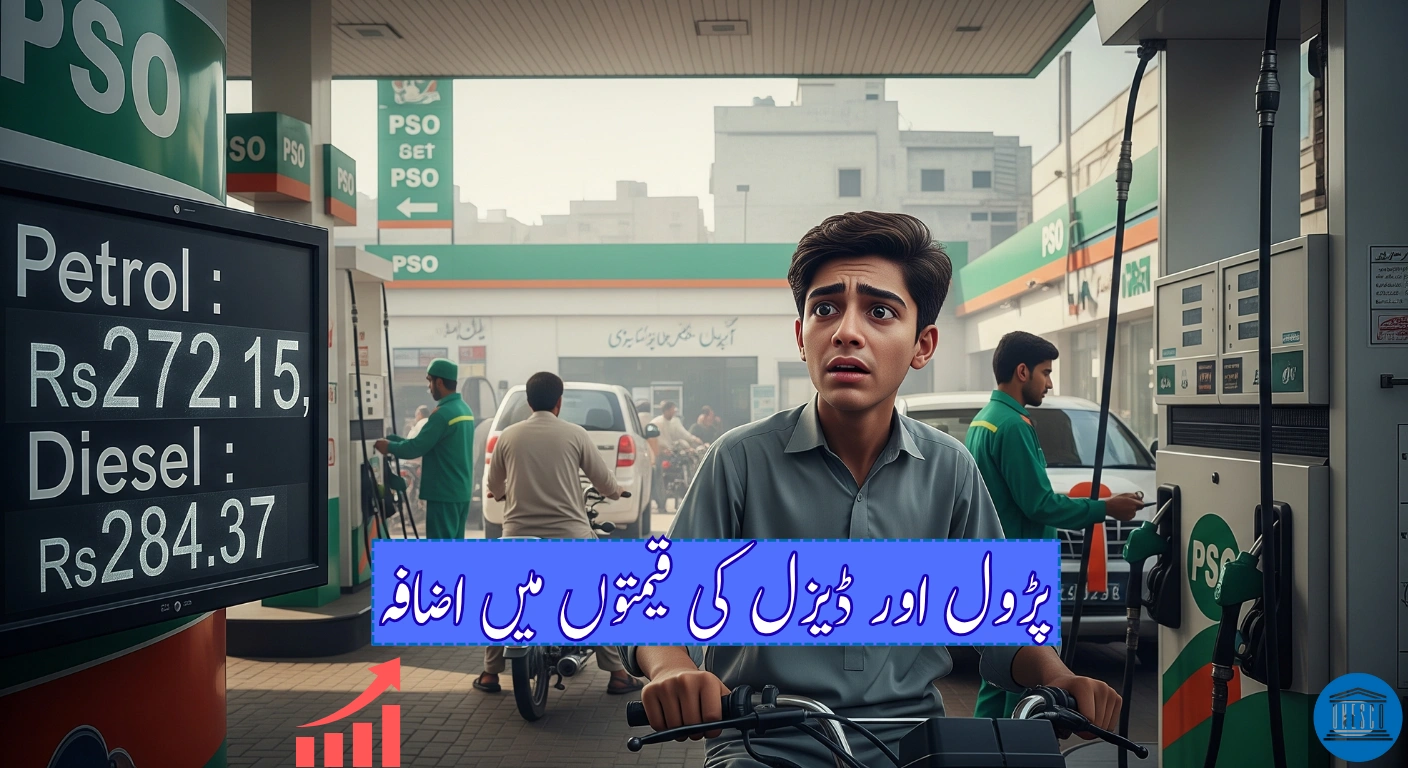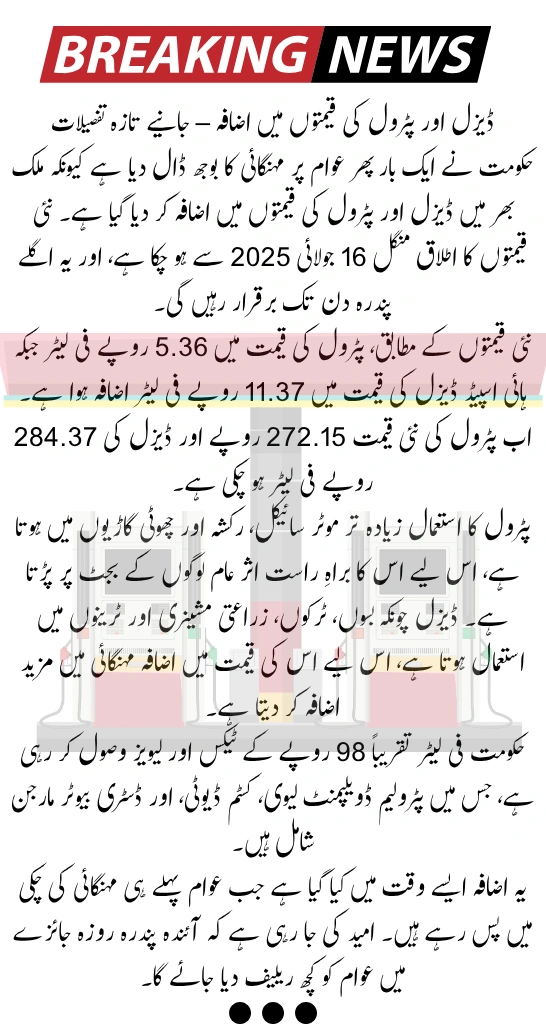If you’ve been feeling the pinch at the pump, here’s the reason why. The diesel petrol prices in Pakistan have once again been increased by the federal government for the next two weeks. This latest revision affects millions of drivers, commuters, and businesses across the country—and it’s important to know what’s changing.
According to the Finance Division, the prices were updated based on recommendations from the Oil and Gas Regulatory Authority (OGRA) and related government departments. These revised rates came into effect from Tuesday, July 16, 2025, and will remain until the next price review.
New Fuel Prices in Pakistan (Effective July 16, 2025)
| Fuel Type | Old Price (PKR/Litre) | New Price (PKR/Litre) | Increase |
|---|---|---|---|
| Petrol | Rs266.79 | Rs272.15 | +Rs5.36 |
| High-Speed Diesel (HSD) | Rs273.00 | Rs284.37 | +Rs11.37 |
| Kerosene | No Change | No Change | 0 |
| Light Diesel Oil (LDO) | No Change | No Change | 0 |
What This Means for Everyday Pakistanis
Petrol is the most widely used fuel by motorcyclists, rickshaw drivers, and private vehicles, so even a minor hike affects millions of households. Diesel, on the other hand, powers trucks, buses, tractors, and trains—making it crucial for transportation, agriculture, and logistics.
With the Rs11+ hike in diesel, prices of groceries, vegetables, and everyday goods could go up due to rising transport costs. Many transport services have already started adjusting fares accordingly.
Where Do These Prices Come From?
Even though there’s 0% GST on fuel, the government is collecting close to Rs98 per litre in total taxes and levies. Here’s how it breaks down:
-
Petroleum Development Levy (PDL): Rs78.02 (Petrol) / Rs77.01 (Diesel)
-
Climate Support Levy (CSL): Rs2.25 per litre
-
Customs Duty: Rs20–21 per litre
-
Dealer/Distributor Margins: Around Rs17 per litre
So yes—more than one-third of the price you pay at the pump is tax and profit margins.
Government Revenue from Fuel
Despite no GST, fuel is still a goldmine for government income. In fiscal year 2023-24, Pakistan collected Rs1.161 trillion through petroleum levies, and for FY25, the target has jumped to Rs1.470 trillion—a 27% increase.
This makes fuel not just a transportation essential but also a major revenue source for the economy.
Final Word
The latest hike in diesel petrol prices is yet another burden for ordinary citizens and small businesses. With rising inflation, stagnant wages, and expensive energy, even a small increase hurts. Keep an eye on your fuel usage, plan trips wisely, and stay informed about the upcoming fortnightly reviews.
If you’re feeling the impact of these changes—you’re not alone. Let’s hope for relief in the next update.






![Today Saudi Riyal To Pakistani Rupees (SAR to PKR) – 24 July 2025 Rates [Updated]](https://unesco.org.pk/wp-content/uploads/2025/07/Today-Saudi-Riyal-To-Pakistani-Rupees-SAR-to-PKR-–-24-July-2025-Rates-Updated-768x419.webp)




